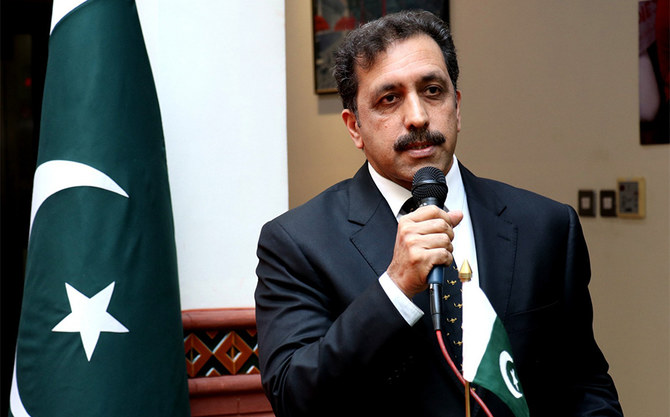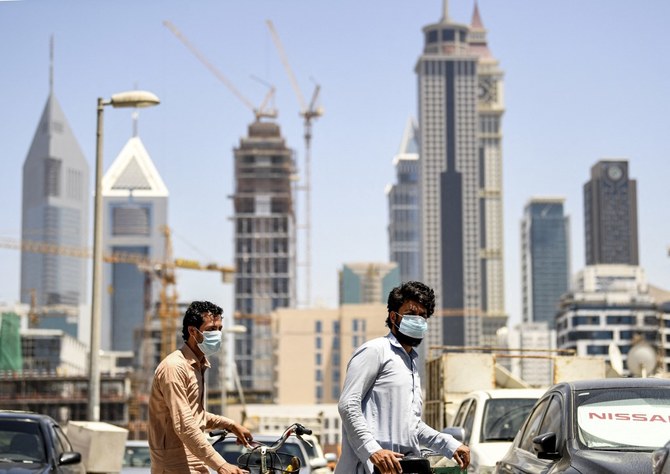DUBAI: Pakistan’s newly appointed ambassador to the United Arab Emirates on Tuesday denied any visa problems between the two countries, saying the process to get travel permits would improve further in the foreseeable future.
In November last year, media reported that the United Arab Emirates had stopped issuing new visas to citizens of 13 mostly Muslim-majority countries, including Iran, Syria, Afghanistan and Pakistan.
“There are no such [visa] issues,” Ambassador Afzaal Mahmood told Arab News in his first media talk since taking office in January. “In the coming days, you will see the process ease up more.”

In this undated photo, Pakistan’s Ambassador to the United Arab Emirates, Afzaal Mahmood addressing an event in Abu Dhabi. (credit: Pakistan Embassy, Abu Dhabi)
Mahmood said there had been a noticeable shift in more skilled than unskilled labor from Pakistan coming to the UAE in recent years.
“The shift has been particularly noticeable in the IT sector,” he said. “Therefore, I want to focus more on developing people-to-people relations that are mutually beneficial to both Pakistan and the UAE.”
Mahmood said the two countries should pursue opportunities to collaborate in the fields of climate change, education, agriculture, tourism and investment.
“New opportunities have emerged due to the situation created by COVID-19, such as distance learning, and our youth has smartly made use of them,” he added.
Asked about Pakistan’s participation in the Dubai expo, the envoy said his country had a lot of latent talent: “We have all the potential, and we are looking forward to taking part in the upcoming expo.”
Mahmood also reminded all Pakistanis living in the UAE that they were ambassadors of their country.
“They should all act responsibly in the context of the coronavirus pandemic,” he said, “and follow the safety measures laid down by the UAE authorities.”


















